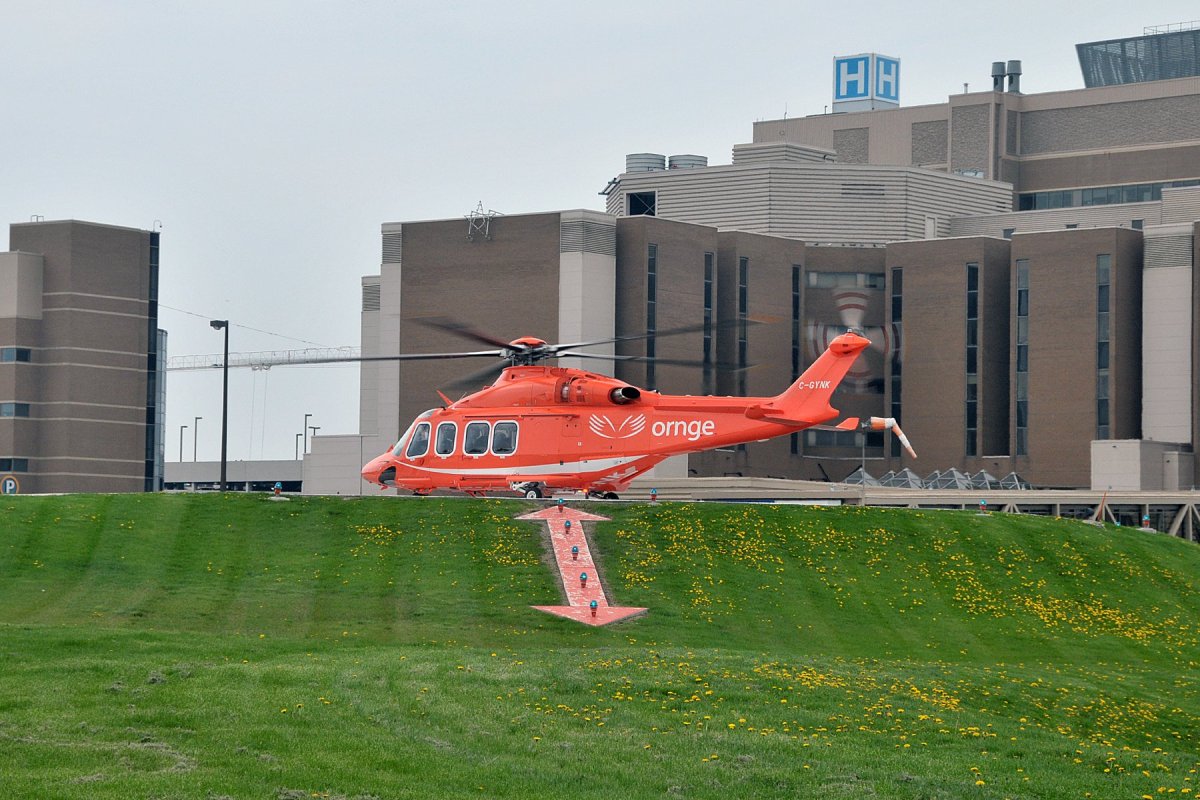The London Health Sciences Centre is adding more critical care beds, preparing the Children’s Hospital to potentially admit adult patients, and reducing the number of scheduled surgeries as it prepares for an anticipated influx in demand for care due to the state of the COVID-19 pandemic across Ontario.

LHSC says that “at the request of the Ontario Critical Care COVID-19 Command Table,” it is working to open up to seven additional critical care beds, on top of 18 extra beds already opened at University and Victoria hospitals.
The seven beds would only open as needed, LHSC says, with four at Victoria Hospital and three at the Children’s Hospital Paediatric Critical Care Unit (PCCU).
The beds at the Children’s Hospital would be allocated to adult patients who require critical care that is not related to COVID-19. LHSC says in the unlikely event that those beds are needed for children, critical care adults would be moved “appropriately and safely.”
LHSC’s chief medical officer Dr. Adam Dukelow tells Global News LHSC is aiming to have the seven beds available for use by the end of the weekend and is “working on plans for how many (more) incremental beds we would be able to open should it be necessary in the near future.”
The surge in demand for hospital resources is due to increasing pressures locally as well as extreme pressures on the health-care system in the Greater Toronto Area.
He says the hospital network is currently receiving anywhere from two to eight patients per day from outside of its jurisdiction, though not every one is an intensive care patient.
Most of the patients are coming from Brampton, Oakville and Mississauga, while patients from other parts of the GTA are heading east towards Kingston and Ottawa, according to Dukelow.
“The situation continues to worsen across the province and the increased beds are necessary to level out the work and just increase capacity overall.”
As of Friday morning, LHSC had 91 COVID-19 inpatients, with 41 in critical care.

In another move to free up health-care resources to address demand related to the pandemic, LHSC will be reducing surgeries and procedures to about 50 per cent of typical activity starting Monday, April 26.
“What that means is that only those surgeries and procedures that are absolutely necessary to occur within the next 30 days will be done in our operating rooms at LHSC,” Dukelow says.
LHSC says “cancer, cardiac, vascular, trauma, transplant, and neurosurgery cases will be prioritized” and any impacted patients will “receive direct communication from their care team.”
However, Dukelow says the field hospital at the Western Fair Agriplex is not required at this time.
- B.C. to ban drug use in all public places in major overhaul of decriminalization
- 3 women diagnosed with HIV after ‘vampire facials’ at unlicensed U.S. spa
- Solar eclipse eye damage: More than 160 cases reported in Ontario, Quebec
- ‘Super lice’ are becoming more resistant to chemical shampoos. What to use instead
“We set up the field hospital just over a year ago and at that point in time, we hadn’t had the opportunity to identify other spots or places that we could care for patients,” he explains.
“There’s been a lot of planning and work that’s gone on since that time last year and there are other spaces within the walls of both LHSC and St. Joe’s that have been identified.”
For example, Dukelow says St. Joseph’s Health Care London has opened 27 low-acuity surge beds that LHSC is transferring patients to, while LHSC has opened up 50 additional beds.
While the provincial case count had started to fall before jumping up again on Friday, Dukelow says the demand on the hospital system will keep growing.
As of Friday, Ontario reported 2,287 people are hospitalized with COVID-19 (down by 63 from the previous day) with an all-time high of 818 patients in intensive care units (up by 12) and 593 patients in ICUs on a ventilator (up by 5).
“Cases in the hospital don’t tend to peak to a week or two after the cases in the province peak. So we will continue to be battling through this for many weeks to come,” he said.
“Public health measures are more important than ever, recognizing the amount of COVID in the community right now and the stress on our hospital system. So please continue to distance and mask and get your vaccine when you can.”
Dukelow adds that the hospital “is still a safe place to be” and will be there to provide essential care.
— with files from Global News’ Jessica Patton and Kelly Wang.








Comments